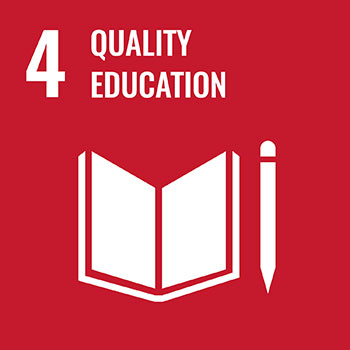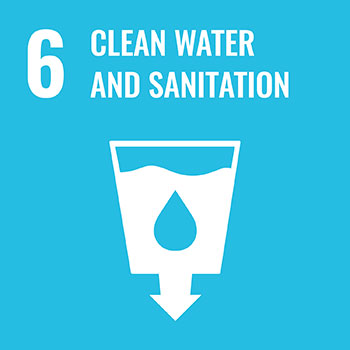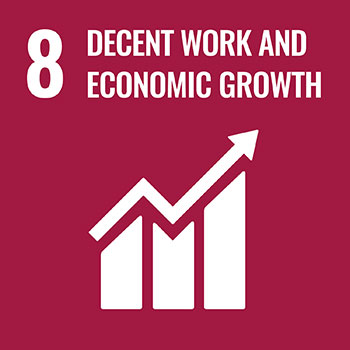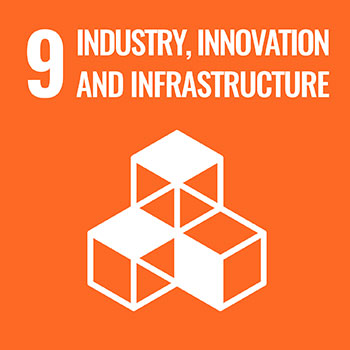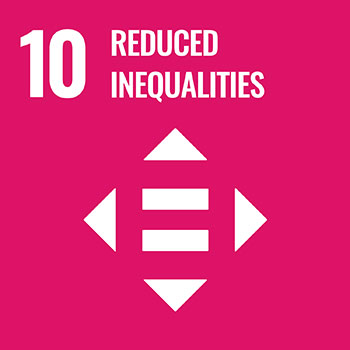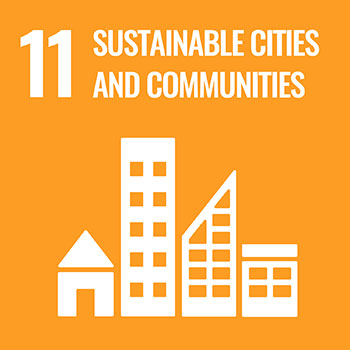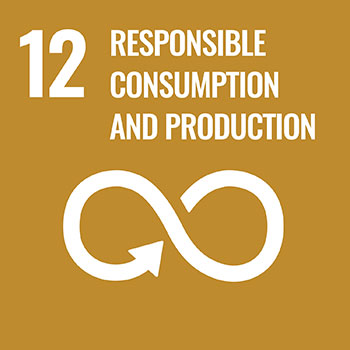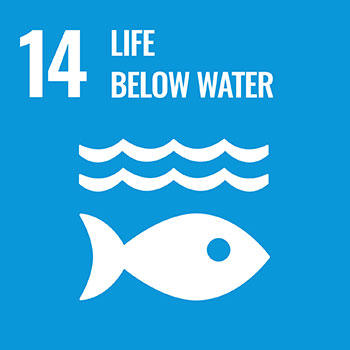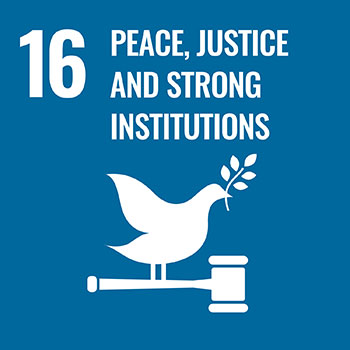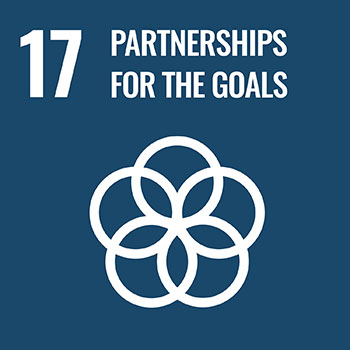Search for academic programs, residence, tours and events and more.

Protect, restore and promote sustainable use of terrestrial ecosystems, sustainably manage forests, combat desertification, and halt and reverse land degradation and halt biodiversity loss.
By aligning its efforts with the targets of SDG 15, Wilfrid Laurier University not only contributes to the preservation of terrestrial ecosystems but also instills a sense of environmental responsibility in our community and serves as a model for sustainable practices in higher education.
The work that Laurier completed in 2023 to advance SDG 15.
Lianne Leddy, an associate professor of History, was honoured with Canada’s top history prize. She received the 2023 Governor General’s History Award for Scholarly Research in recognition of her book Serpent River Resurgence: Confronting Uranium Mining at Elliot Lake. Leddy documented the destructive legacy of uranium mining on Serpent River First Nation in northern Ontario, of which she is a member.
Laurier students got a first-hand look at climate-induced threats facing Canada’s Rocky Mountain region as part of the fourth-year Geography and Environmental Studies field course that focused on communicating climate change in Canada’s mountain regions.
Just as weather forecasting plays a vital role in our everyday decision-making, ecological forecasting can be an influential tool for policymakers tasked with preserving our planet and its species. Frances Stewart, the Canada Research Chair in Northern Wildlife Biology, is using a novel ecological forecasting framework to predict how caribou populations in northern boreal forests will change and move in response to climate change over the coming decades.
Laurier is excited to add the Canadian Council on Ecological Areas (CCEA) historical records to its Archives and Special Collections, providing a resource for researchers interested in biodiversity conservation. Generously donated by the CCEA, the historical records include meeting minutes, strategic plans, research reports and other organizational correspondence dating from 1971 to 2023, with an agreement to continue housing new documents as they are created.
Laurier research centres advancing SDG 15.
The Cold Regions Research Centre was established in 1987. Initially focused on arctic and mountain glaciology and hydrology, the scope has broadened to cold regions (mountain and northern) research consulting on topics such as hydrology, climatology, glaciology, resource management, parks planning and biogeochemistry.
The Laurier Centre for Sustainable Food Systems (LCSFS) connects researchers and community partners engaged in sustainable food systems change. It creates opportunities for citizens, practitioners, policy-makers, private enterprise and academics to work together to imagine and foster food systems that are fair, healthy, ecologically regenerative, culturally appropriate, prosperous and inclusive. Using food as a lever for positive change, the LCSFS enables meaningful collaboration among people across institutions, sectors and disciplines to support community-driven research, innovative knowledge sharing, and the development of community resources and sustainable food system policy.
Laurier initiatives in 2023 that advanced SDG 15.
Since 2010, Laurier has maintained a unique and productive research partnership with the Government of the Northwest Territories (GNWT). The partnership, which has been expanded and extended to 2030, has brought new research expertise and training opportunities to the Northwest Territories and strong community connections and research opportunities to Laurier scholars. Much of the work through Laurier's partnership with the GNWT addresses the SDGs. Close connections between academic researchers and government enhance policy development related to the SDGs and improve the capacity of government to engage in adaptive management.
Discover how Laurier is contributing to United Nations Sustainable Development Goal targets.



